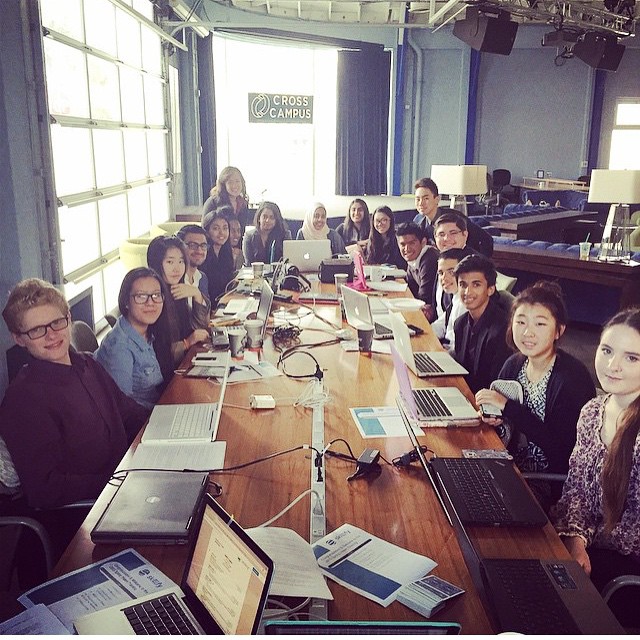
18 Sep High School Internships are a Distraction for Students – Myth?
I was speaking to a colleague recently. This is someone who has spent 15+ years implementing high school internships and other work-based learning programs. We were discussing the concerns parents have around their child pursuing work experience.
“There’s a real fear among parents that if their child gets involved in the world of work, takes on an internship or job, and starts making money, they’ll get distracted from their studies,” he shared. “And when the goal is to get into a good college, extracurriculars are prioritized and work experience is seen as a distraction.”
But is high school work experience truly a distraction? What role do high school internships play in a student’s development?
Lack of Work Experience proves to be challenging
Too many students are going off to college with excellent academic resumes. Resumes are padded with extracurriculars and service projects, but no prior work experience. Students have to choose college majors before exploring their interests. They have to find internships at the age of 19 and 20 despite having no experience to show employers. Students feel lost when their declared major turns out to be a bad fit. And discouraged when they hear no good news despite submitting 50+ internship applications.
We all know of students facing these challenges in college, and many educators have taken note of the educational shortcomings that leave our students feeling lost after high school. As a result, there has been a huge push towards preparing students not just for college, but also for their careers through high school internships and other work experience. A report by the Workforce Training and Education Coordinating Board discusses the importance of exposure to work experience before high school graduation:
“Work experiences—part-time for students and full-time for those not attending school— reinforce and help form key behaviors that educational specialists recognize as essential to success. These behaviors include planning for the future and setting goals, identifying resources, seeking information and feedback, and evaluating what has worked and what has not…. When firmly in place, these habits help guide an individual through life’s many choices and obstacles. Employers also recognize and value these habits in their employees as teamwork, problem-solving, critical-thinking skills, and perseverance…”
Unfortunately, according to the “High School Careers” study conducted by Millennial Branding and Internships.com, over 50% of parents say they are not helping their children gain high school work experience.
Is this due to the fear of work experience being a distraction? Research conducted on Student Internships by EBSCO challenges this fear, and highlights the positive impacts of high school internships on participants:
“Internships get students more engaged so they can take a leading role in their own education. Internships provide a way to raise academic achievement for some students. They are an effective means to get students interested in school and to make learning matter.”
And for my parents who may be concerned about their child dropping out of school: another advantage noted in the research is that internships play a positive role in keeping students in school.
Why I am an advocate:
I’ve seen all of these positive impacts first-hand. One of the biggest reasons why I am such a big advocate for high school internships and work experience is because there is not a single week that goes by without my Skillify team receiving an email from a student whose entire perspective has changed (for the better) due to time spent in an internship. An email I received recently from one of our students, Maria:
“I was skeptical at first, who would want to hire a 16 year old? But my mentor introduced me to her friend at YouTube and I spent my summer there! And everyone was so nice. They asked me about my interests, and I realized that adults are really not that scary… and they actually want to help me! I never thought about taking business classes at my high school… but I enrolled in one for this Fall!”
This is a student who has taken AP classes and honor courses as early as she could. She had let me know that she would have never considered a business class. But after just a month in an internship, she was able to step out of her academic environment. She understood her interests better, and planned a course of action for herself. There are also plenty of students who get their “dream internships.” And they learn early on that it isn’t the right career path for them at all. That’s exciting. Because now they can cross that interest off their list and move on… Better to figure this out at 16.
And there’s more good news.
More employers today (50% of those surveyed in the “High School Careers” study) are offering high school internships. 90% of them agree that high school internships help students stand out on college applications. And make students more competitive for internships in college.
When students gain work experience, they understand their interests better. They are able to declare a major based on experience. This makes them less likely to switch majors and feel lost. Plus, their high school work experience will allow them to pursue internships as soon as they enter college. It will make them more appealing in the long-term job market. And most importantly, exposure to the working world helps students understand their value. They’ll know it is much more than their academic achievements. And that there are plenty of adults willing to support them as they build their professional and personal identities.
So to all of the parents out there: if your child wants to pursue an internship or work experience, help them build a plan to do so. Work experience will help them focus their high school and college experiences on courses they know interest them, and opportunities that they find valuable. They’ll develop confidence, self-awareness, and key skills needed to thrive long-term.

No Comments